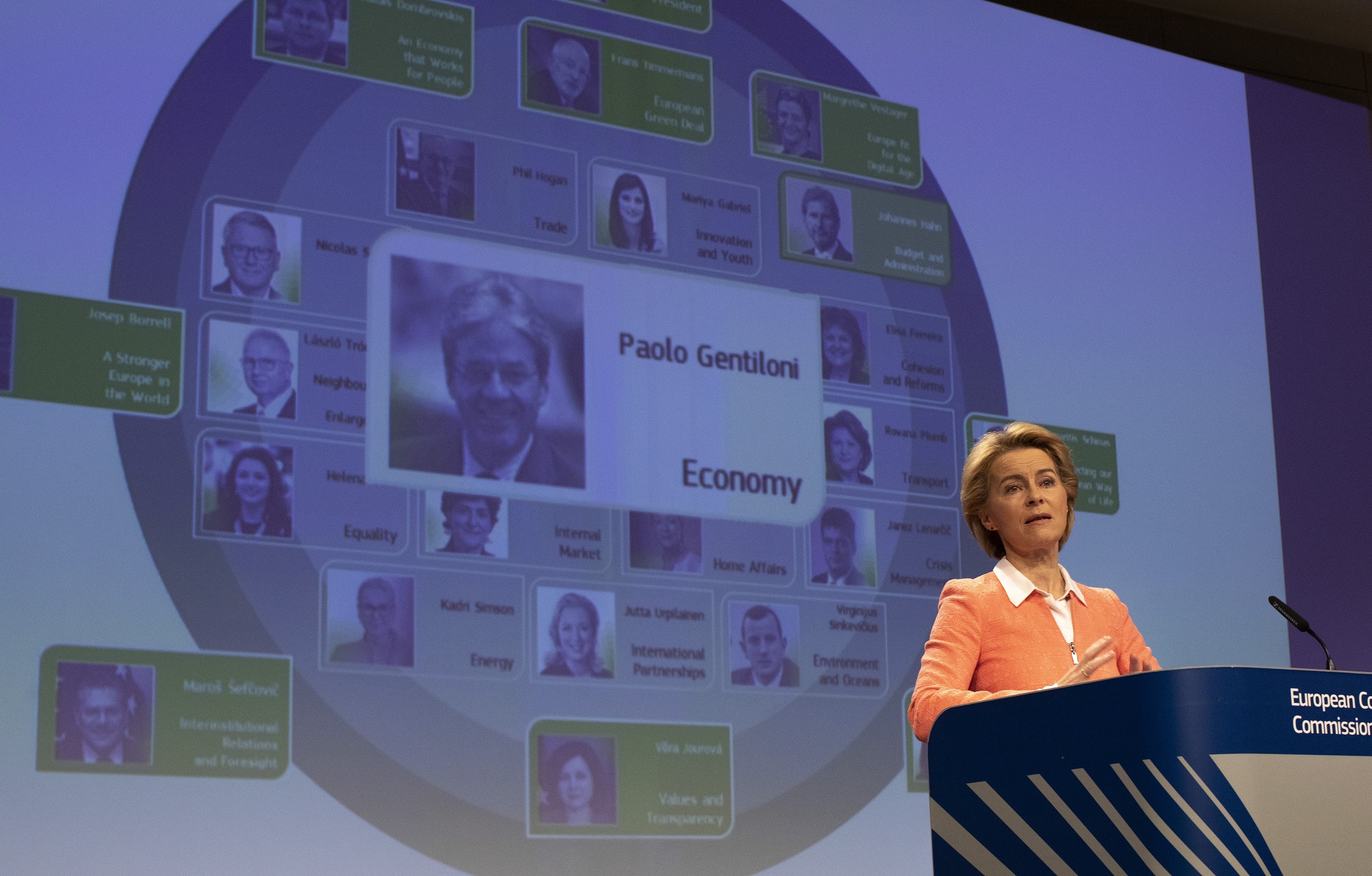
Tensions grow between national governments and EU bureaucrats over managing crisis
Countries concerned over economic damage caused by the coronavirus and taking measures to protect their economies within their own powers appear to disagree with EU bureaucrats. On Wednesday, Mario Draghi, former president of the European Central Bank warned that the "cost of hesitation may be irreversible" at a time of crisis. Also on Wednesday, Italy s Prime Minister Giuseppe Conte welcomed the EU s measures, but added that "late answers are completely useless". Austrian Chancellor Sebastian Kurz called for more clarity on the question of "European solidarity" once the crisis was over. European Commission President Ursula von der Leyen said that some member states took action in the spirit of "only for me" instead of "all for one".
EU finance ministers agreed at their recent video conference that definite measures should be taken to mitigate the economic damage caused by the coronavirus pandemic. However, they failed to reach an agreement. Member states hardest hit by the crisis – including Italy, Spain and Portugal – asked to amend EU rules on government deficit targets and to release the financial resources of the European Stability Mechanism (ESM), but their proposal met with resistance from other member states including Germany and the Netherlands. The issues of new regulations on GDP-proportionate public debt and releasing ESM funds were put on the table of the meeting of EU heads of state and government on Thursday.
The talks around the European Stability Mechanism are irrelevant for now. The European Central Bank is providing enough firepower for governments to boost spending. The real issue for leaders is what will happen to the extra debt. My column for @bopinion https://t.co/Cix224vL2a
— Ferdinando Giugliano (@FerdiGiugliano) March 26, 2020
On Wednesday, former European Central Bank (ECB) President Mario Draghi published an opinion piece in the Financial Times. He claimed that the biggest challenge the EU faces is how to act with sufficient strength and speed in the extraordinary situation caused by the coronavirus pandemic. According to Draghi, the growing public debt in member states is inevitable as the loss of income incurred by the private sector — and any debt raised to fill the gap — must eventually be absorbed, wholly or in part, on to government balance sheets. He pointed out that the governments have made the most critical steps to protect their citizens and jobs, but the hesitation at EU level might cause irreversible damages in the bloc s economy. „Faced with unforeseen circumstances, a change of mindset is as necessary in this crisis as it would be in times of war. The cost of hesitation may be irreversible,” Mario Draghi claimed.
Mario Draghi: We face a war against coronavirus and must mobilise accordingly — Higher public debt levels will become an economic feature and be accompanied by private debt cancellation.https://t.co/SGVKLPGjtM /via @FT #coronacrisis
— Yannis Koutsomitis (@YanniKouts) March 25, 2020
„We need a quality change on the economic management of the eurozone due to the coronavirus crisis,” Italian Prime Minister Giuseppe Conte said in a televised address on Wednesday. Conte said that the monetary union could win only „if its institutions are strengthened in the name of solidarity and unity.” He added that the EU s reactions are good, „but late answers are completely useless.” The number of coronavirus cases has exceeded 74,000 and death toll has risen to 7,500 in Italy by Thursday, and the country has only received concrete help from Cuba and Russia in the form of doctors, nurses and equipment.
Waving Italian and Cuban flags and bumping elbows, a team of more than 50 doctors, nurses and experts from Cuba arrived in Milan to help fight the coronavirus outbreak in Italy after an official called for international help. https://t.co/GGLk8JxRBl pic.twitter.com/BZJ94ynikD
— ABC News (@ABC) March 24, 2020
A pandemic without borders cannot be resolved by reintroducing borders. Still, many member states chose this solution, European Commission President Ursula von der Leyen pointed out on Thursday, after a plenary session on crisis management in Brussels. „When Europe really needed an all for one spirit too many initially gave an only for me response,” von der Leyen said. Fortunately, member states have realised that they have to help each other,” Ms von der Leyen said. She emphasized that the management of the situation after the crisis also requires a coordinated European response.
This week, Austrian Chancellor Sebastian Kurz expressed concerns over the failure to coordinate EU efforts, saying that the question of European solidarity should be discussed once the crisis was tackled. Kurtz strongly criticised the lack of orchestrated measures, noting that it took Austria two weeks of trouble to obtain permit for a truck transporting protective masks to cross the German border.
While we may be sitting further apart than usual, we must work closer together than ever before.
President @vonderleyen speaking at the European Parliament. Watch live ↓ #Coronavirus #EPlenaryhttps://t.co/AOGkrJLJB7
— European Commission ???????? (@EU_Commission) March 26, 2020
MEP Nicolas Bay of the French National Rally criticised Ms von der Leyen and EU leaders for their response at the European Parliament s extraordinary plenary session on Thursday. „We have a big challenge and you are absent,” the Brussels correspondent of Politico quoted the French MEP. „The European Commission has put Europeans at risk. The EU is not even capable of coordinating the measures taken by the member states. The Covid-19 crisis is a nail, perhaps the last one, in the coffin of an impotent bureaucracy,” Nicolas Bay said.

